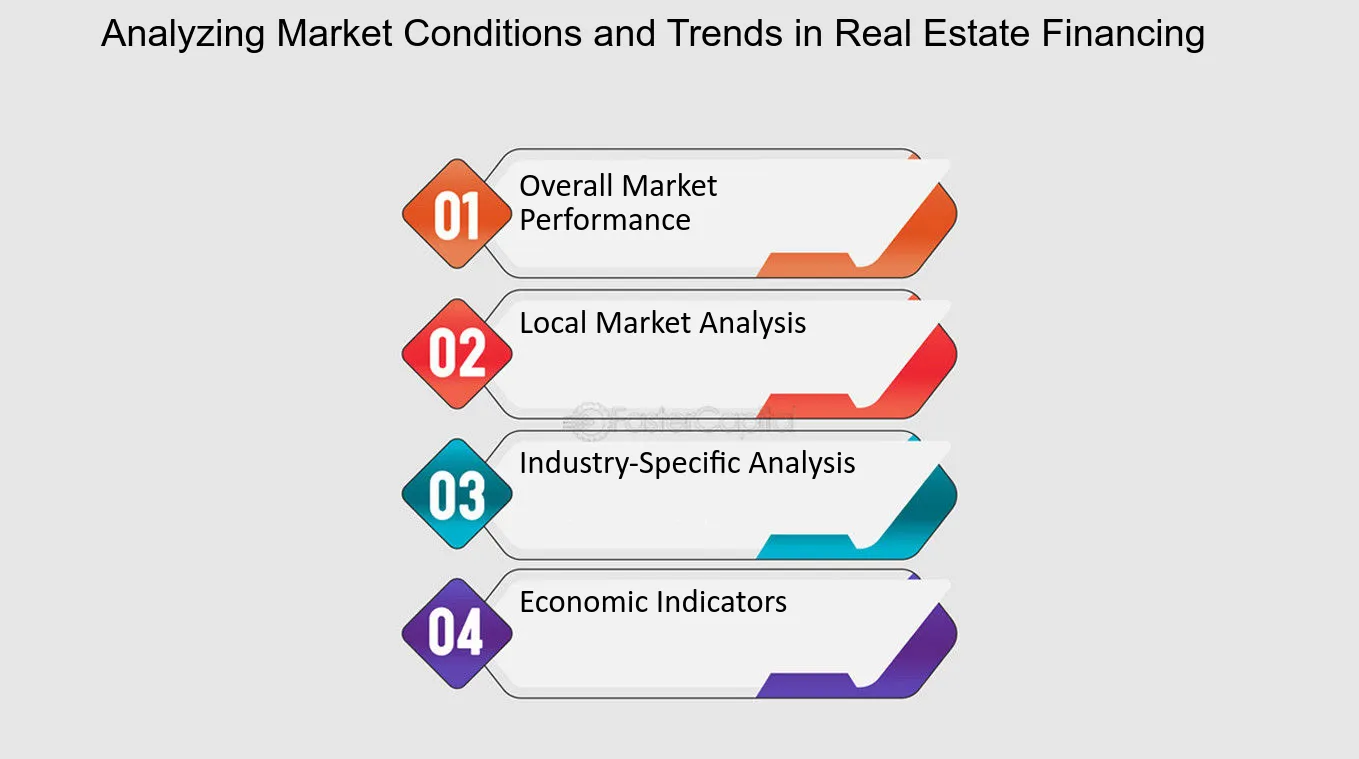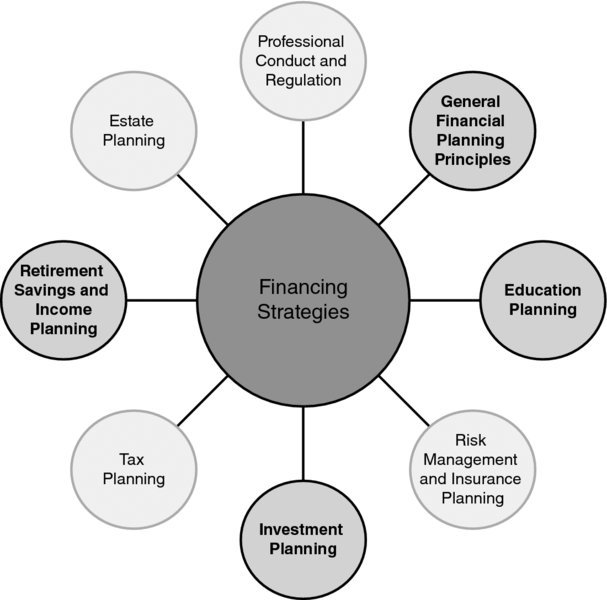Estate Financing
Real estate transactions involve significant financial investments and complex processes. Estate financing plays a crucial role in facilitating these transactions by providing the necessary funds for individuals or organizations to purchase, develop, or renovate properties.
In simple terms, estate financing refers to the methods and means through which buyers secure financial resources to acquire or invest in real estate assets. When it comes to purchasing a property, few individuals have the ability to pay the full purchase price upfront.
This is where estate financing steps in, enabling buyers to obtain loans or other forms of financial assistance from lenders such as banks, credit unions, or private lenders. These financial institutions offer various types of loans tailored specifically for real estate purposes.
Definition and Overview of Estate Financing
Estate financing encompasses a broad range of financial arrangements designed for real estate transactions. It involves obtaining funds that can cover all aspects related to buying or investing in properties – from down payments and closing costs to construction expenses and property improvements.
The primary objective of estate financing is to provide individuals with access to capital that they can use strategically within the realm of real estate. This type of financing typically involves a contractual agreement between the borrower (the buyer) and the lender (the institution providing funds).
The agreement outlines detailed terms and conditions regarding interest rates, repayment schedules, collateral requirements (if applicable), and other essential factors that govern the borrowing process. By understanding these key elements, borrowers can make informed decisions that align with their long-term financial goals while meeting their immediate needs in acquiring or developing real estate assets.
Importance of Estate Financing in Real Estate Transactions
Estate financing plays an undeniable role in driving real estate transactions worldwide. Its significance stems from several key factors:
- Leveraging Financial Resources: Estate financing allows buyers to leverage their financial resources by spreading the cost of a property over a longer period. This enables individuals to broaden their purchasing power and acquire properties that may have been otherwise unaffordable upfront.
- Promoting Economic Growth: real estate investments, facilitated by estate financing, contribute to economic growth by stimulating construction activity, creating job opportunities, and generating income through rental properties or property appreciation.
- Increasing Property Ownership: Estate financing provides opportunities for individuals or families who aspire to own a home but lack the necessary funds for an outright purchase. It helps democratize property ownership and fosters wealth accumulation among a broader segment of the population.
- Facilitating Property Development: Estate financing is essential in promoting property development projects such as commercial buildings or residential complexes. By offering developers access to capital for construction purposes, estate financing fuels urbanization and infrastructure growth.
Estate financing serves as the backbone of real estate transactions by providing borrowers with essential financial resources necessary for acquiring or investing in properties. Whether it is a traditional mortgage loan from a bank or alternative forms of creative financing strategies, understanding these options empowers individuals to make informed decisions within the realm of real estate.

Traditional Mortgage Loans
Fixed-Rate Mortgages
When it comes to estate financing, fixed-rate mortgages are a popular choice among borrowers. With a fixed-rate mortgage, the interest rate remains constant throughout the loan term, providing stability and predictability for homeowners.
This means that monthly mortgage payments remain unchanged over the life of the loan, regardless of fluctuations in the broader housing market or interest rates. Fixed-rate mortgages allow borrowers to budget effectively and plan for their financial future without worrying about sudden increases in their mortgage payments.
Adjustable-Rate Mortgages
In contrast to fixed-rate mortgages, adjustable-rate mortgages (ARMs) offer borrowers an initial fixed interest rate period followed by a variable interest rate that adjusts periodically based on specific market indices. ARMs typically have lower initial interest rates than fixed-rate mortgages, making them attractive to buyers who want lower upfront costs or plan to sell their property within a few years.
However, there is an inherent risk with ARMs due to potential rate fluctuations after the initial period expires. Borrowers must carefully consider their ability to handle potential payment increases if market conditions cause interest rates to rise significantly.
Interest-Only Mortgages
Interest-only mortgages offer borrowers the option of paying only the interest portion of their loan for a specific period at the start of the loan term. This arrangement allows borrowers to have lower monthly payments during this initial phase but does not contribute towards reducing the principal amount borrowed.
After this predetermined period ends, typically between five and ten years, borrowers must start making principal payments along with interest until fully repaid or refinance their mortgage. Interest-only mortgages can be beneficial for individuals with fluctuating income streams or those who anticipate significant financial growth in future years.
Bridge Loans and Construction Loans
Purpose and Characteristics of Bridge Loans
Bridge loans serve as interim financing options during the process of buying and selling real estate. They provide immediate funds to bridge the gap between the purchase of a new property and the sale of an existing one. Typically, bridge loans have shorter terms, higher interest rates, and are secured by collateral (such as the property being sold).
These loans help borrowers overcome liquidity issues, allowing them to secure a new property before selling their current one. Bridge loans are especially useful when timing is crucial or when buyers require cash for a down payment on their new estate.
Role of Construction Loans in Estate Financing
Construction loans play a crucial role in financing new residential or commercial developments. These loans provide funds for land acquisition, construction costs, and other expenses associated with building projects. Lenders disburse construction loan funds in stages or “draws” based on predefined milestones or completion percentages.
As each stage is completed, borrowers can access additional funds to pay contractors and cover ongoing construction costs. Once the construction is complete, borrowers typically convert the construction loan into a long-term mortgage or refinance it with traditional mortgage options.
Government-Backed Loans
FHA (Federal Housing Administration) Loans
FHA loans are government-backed mortgages insured by the Federal Housing Administration. Aimed at assisting moderate-income individuals and first-time homebuyers who may have difficulty qualifying for conventional loans due to credit challenges or limited down payment capabilities, FHA loans offer several benefits. The eligibility criteria for FHA loan borrowers are less stringent compared to conventional mortgages, allowing lower credit scores and smaller down payments (as low as 3.5%).
Additionally, FHA loans often offer competitive interest rates and allow sellers to contribute towards closing costs. The FHA plays a vital role in promoting affordable housing opportunities across various communities.
VA (Veterans Affairs) Loans
VA loans are exclusive to eligible veterans, active-duty military personnel, and surviving spouses. Backed by the Department of Veterans Affairs, these loans offer numerous advantages to those who have served in the armed forces.
VA loans often require no down payment, making homeownership more accessible for veterans. They also do not necessitate private mortgage insurance (PMI), resulting in additional cost savings for borrowers.
Furthermore, VA loans have more lenient credit requirements compared to conventional mortgages, providing opportunities for individuals with limited credit history or past financial challenges. These government-backed loans honor the service and sacrifice of veterans by providing them with unique financing options to achieve their homeownership dreams.
In understanding estate financing comprehensively, it is crucial to delve into different types of financing available to borrowers. Traditional mortgage loans such as fixed-rate mortgages, adjustable-rate mortgages (ARMs), and interest-only mortgages offer varying benefits tailored to different financial circumstances.
Additionally, bridge loans and construction loans play vital roles in facilitating real estate transactions during transitional periods or when starting new construction projects. Government-backed loan programs like FHA and VA loans demonstrate a commitment towards affordable housing opportunities and supporting veterans on their path to homeownership.

Seller Financing or Owner Financing
The Empowering Alternative
In the realm of real estate transactions, seller financing, also known as owner financing, has emerged as an empowering alternative for both buyers and sellers. This creative financing option involves the seller acting as the lender, directly providing a loan to the buyer instead of relying on a traditional mortgage from a financial institution. The process begins with negotiation between the buyer and seller to determine the terms of the loan, including interest rates, repayment period, and any additional conditions.
Once an agreement is reached, a promissory note is created outlining these terms along with details regarding collateral and consequences for default. This note serves as evidence of the debt owed by the buyer to the seller.
The advantages of seller financing are manifold for both parties involved. For buyers who may not qualify for traditional loans due to credit issues or insufficient down payments, this option provides an opportunity to secure property ownership.
It offers flexibility in terms of down payment requirements and can eliminate some closing costs associated with conventional mortgages. Moreover, buyers can often bypass rigorous credit checks and complicated underwriting processes that are typically required by financial institutions.
Sellers also benefit from this arrangement by widening their pool of potential buyers. Seller financing opens doors for those who may not otherwise be eligible for bank loans but possess financial stability and integrity.
By acting as a lender themselves, sellers gain control over interest rates and repayment schedules which can potentially yield higher returns than other investment options. Additionally, sellers have greater security since they retain legal ownership until full payment is received; if default occurs they can reclaim ownership without resorting to lengthy foreclosure proceedings.
Lease Options or Rent-to-Own Agreements
Fostering Pathways to Homeownership
For individuals seeking an alternative path towards homeownership without committing fully at inception, lease options or rent-to-own agreements are viable choices. These arrangements grant tenants the right to purchase the property they are renting within a specified period, typically two to five years. During this time, a portion of the monthly rent is set aside as a credit towards the future down payment.
Lease options provide tenants with an opportunity to experience living in the property before assuming full ownership responsibilities. They can evaluate if the location and condition meet their expectations while simultaneously building equity through rental payments that contribute towards eventual ownership.
This option allows for flexibility by offering tenants an escape clause if they decide not to proceed with the purchase. On the other side, landlords benefit from lease options by attracting potential buyers who may not qualify for traditional financing at present but have aspirations of homeownership.
They also have greater assurance of consistent rental income since tenants have a vested interest in maintaining and improving the property. Furthermore, if tenants fail to exercise their option, landlords retain both ownership and any funds accumulated through rent credits.
While lease options offer several advantages, it is crucial for both parties to consider potential risks. Tenants must be cautious about committing non-refundable option fees or higher-than-market rent payments that can be lost if they choose not to purchase later on.
Additionally, they should assess their financial capability and likelihood of qualifying for mortgage financing within the agreed-upon timeframe. Landlords need to carefully screen potential tenants to ensure they possess sufficient financial stability and commitment.
Wraparound Mortgages or All-Inclusive Trust Deeds
A Harmonious Blend of Financing
In certain situations where traditional mortgage financing is unattainable or cumbersome, wraparound mortgages or all-inclusive trust deeds (AITDs) present an intriguing alternative that encapsulates elements from both conventional mortgages and seller financing. A wraparound mortgage involves creating a new loan agreement between buyers and sellers while incorporating any existing mortgages on the property into one comprehensive loan package. The buyer makes payments to the seller, who in turn is responsible for making the necessary payments on the underlying mortgage(s).
This arrangement allows buyers to bypass traditional lenders and benefit from more flexible terms determined by negotiation with the seller. The advantages of wraparound mortgages are numerous.
For buyers, they provide an opportunity to secure financing without fulfilling stringent credit requirements imposed by traditional lenders. This option allows for a lower down payment and can be beneficial when interest rates are high or when assumable loans with favorable terms exist on the property.
Additionally, sellers can often negotiate higher interest rates on their existing mortgages, thereby increasing their overall return on investment. However, it is vital for both parties to exercise caution and consider potential risks associated with wraparound mortgages.
Buyers should conduct thorough due diligence to ensure there are no hidden liens or legal complications tied to the property’s existing mortgage(s). They must also have a contingency plan in case of default since failure to make timely payments could lead to foreclosure by the original lender.
Sellers need to assess buyers’ financial capacity and stability before entering into such agreements and should monitor ongoing payments closely. Creative financing options such as seller financing, lease options, and wraparound mortgages offer alternative pathways towards real estate ownership that transcend traditional lending institutions.
Each option carries its own unique set of advantages and considerations that should be carefully evaluated by both sellers and buyers before committing to these alternative financing models. By exploring these creative solutions, individuals can overcome barriers that may have hindered their dreams of property ownership while fostering mutually beneficial arrangements that empower all parties involved.
Financing Strategies for Estate Investors

Private Money Lending or Hard Money Lending
Private money lending, also known as hard money lending, is an alternative financing strategy that real estate investors often turn to when traditional banks are not an option. Unlike banks, private money lenders are typically individuals or small companies who provide short-term loans with higher interest rates and less stringent qualification criteria.
One of the main differences between private money lenders and traditional banks is the speed at which loans can be obtained. Private money lenders can often provide funding in a matter of days compared to the lengthy approval process of traditional banks.
Differences between Private Money Lenders and Traditional Banks
There are several key distinctions between private money lenders and traditional banks. Firstly, while banks primarily consider a borrower’s credit score and financial history, private money lenders focus more on the value of the property being financed.
This makes private money lending an attractive option for investors with less-than-perfect credit scores or recent financial downturns. Additionally, traditional bank loans typically involve extensive paperwork and bureaucracy, whereas private loans tend to have simpler application processes with fewer requirements.
How Private Money Lending Can Benefit Real Estate Investors
Private money lending offers numerous benefits for real estate investors. Firstly, it provides fast access to capital that can be crucial in seizing time-sensitive investment opportunities or securing properties in competitive markets where quick cash offers are required.
Moreover, private lenders often offer more flexible repayment terms compared to conventional financing options, allowing investors to structure deals tailored specifically to their needs. Additionally, since private lenders base their decision on the property’s value rather than a borrower’s creditworthiness, real estate investors with limited borrowing options can leverage this strategy to grow their portfolios.
Crowdfunding Platforms for Real Estate
In recent years, crowdfunding has emerged as an innovative financing strategy in the real estate industry, enabling investors to pool their resources and collectively fund various projects. Real estate crowdfunding platforms allow individual investors to invest in a diverse range of properties, from residential homes to commercial developments, with lower capital requirements compared to traditional property investments.
This strategy offers several benefits for estate investors, including diversification of their portfolios and access to new markets that were previously out of reach. Furthermore, crowdfunding provides an opportunity for both experienced and novice investors to participate in real estate ventures with varying investment sizes.
Conclusion
Understanding the various financing strategies available to estate investors is essential for navigating the ever-changing landscape of real estate transactions. Private money lending offers a valuable alternative for those who face challenges with traditional bank loans due to credit history or time constraints. The speed and flexibility offered by private lenders can greatly benefit investors looking to capitalize on lucrative opportunities quickly.
Additionally, the rise of crowdfunding platforms has democratized real estate investing, allowing individuals with varying financial means to partake in property ventures that were once reserved for well-established companies and high-net-worth individuals. By exploring these diverse financing options and keeping up-to-date with industry trends, real estate investors can expand their horizons and enhance their chances of success in this dynamic market.





